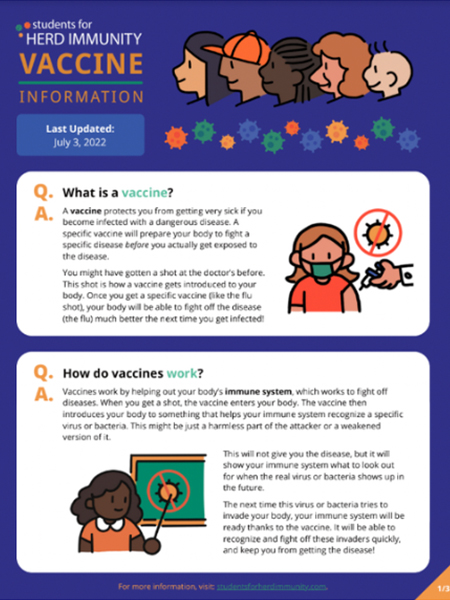Emory medical student Keziah Daniels grew up in Guyana and immigrated to the United States at 18 with her family. When she first heard about the anti-vaccine movement, she couldn’t understand why people would be against such a life-saving resource.
“A lot of the struggle in undeveloped countries, much like my own, was death by communicable diseases. Often, they don’t have the resources to vaccinate, which hurts their populations health-wise and economically,” says Daniels. “But then I thought I should try to understand their point of view. You don’t know someone else’s story. I also learned that persons of color have been medically mistreated here in the past, which helped make more sense of the mistrust.”
As the first physician in her family, Daniels has been challenged to explain the advantages and safety of vaccinations even to people close to her. “A lot of it is fear of the unknown, a lack of understanding,” she says.
When the opportunity came to be part of the newly-founded nonprofit Frontline Immunity (formerly Students for Herd Immunity), Daniels thought it was the perfect opportunity to be part of a solution.
“To be able to bridge that gap is one of the reasons I got involved with this cool initiative: to educate people with objective data, who will themselves become ambassadors in their communities,” says Daniels, youth advisory board facilitator for the group. “You can teach something on a macro scale, but it needs to be implemented on a micro level.”
Frontline Immunity’s founding director, Cha Cha Yang, an MS/MBA student at Harvard Business School, says the group uses virtual workshops, led by facilitators like Daniels, to educate and mentor younger students, enabling them to become health advocates. The student volunteers are armed with clear, current and factual information about immunity and vaccine safety.
“We realized if we were going to try to tackle this issue, we needed to do it early on to prevent misinformation from crystalizing and compounding over many years,” says Yang.
Frontline Immunity has vaccine information for audiences ranging from elementary school children through adults.
The students are taught the basics, from how a body’s immune system works to the process of developing vaccines and testing them for effectiveness and safety. The facilitators also teach students about the social factors underlying vaccine hesitancy in marginalized communities. “We work closely with grassroots organizations in these communities to make sure we bring up these issues in a compassionate, sensitive and culturally competent way,” says Yang.
In addition to gaining partners and expanding the program across Canada and the U.S., Yang and Rosado are working on a children’s book about Tim the T Cell, a young cell that grows up and fights off infection through public health. “He’s a helper cell,” explains Rosado. “We are trying to take this complicated process in the body that happens when you get sick and make the subject more approachable and understandable.”
Yang chimes in: “Tim the T Cell is the hero we all need right now.”
For more information about the group, visit the Frontline Immunity website.

